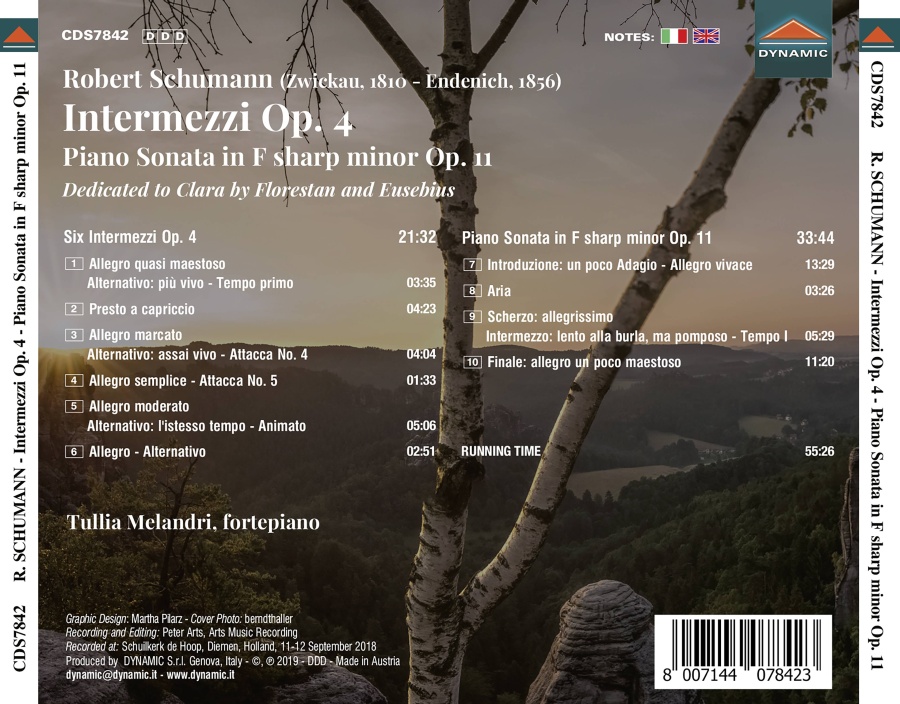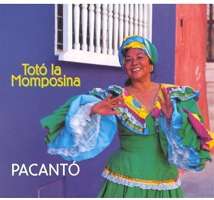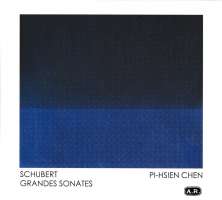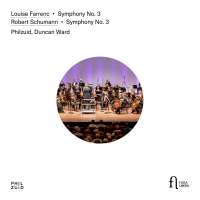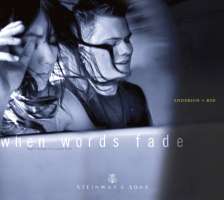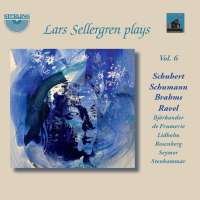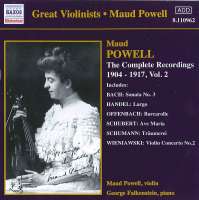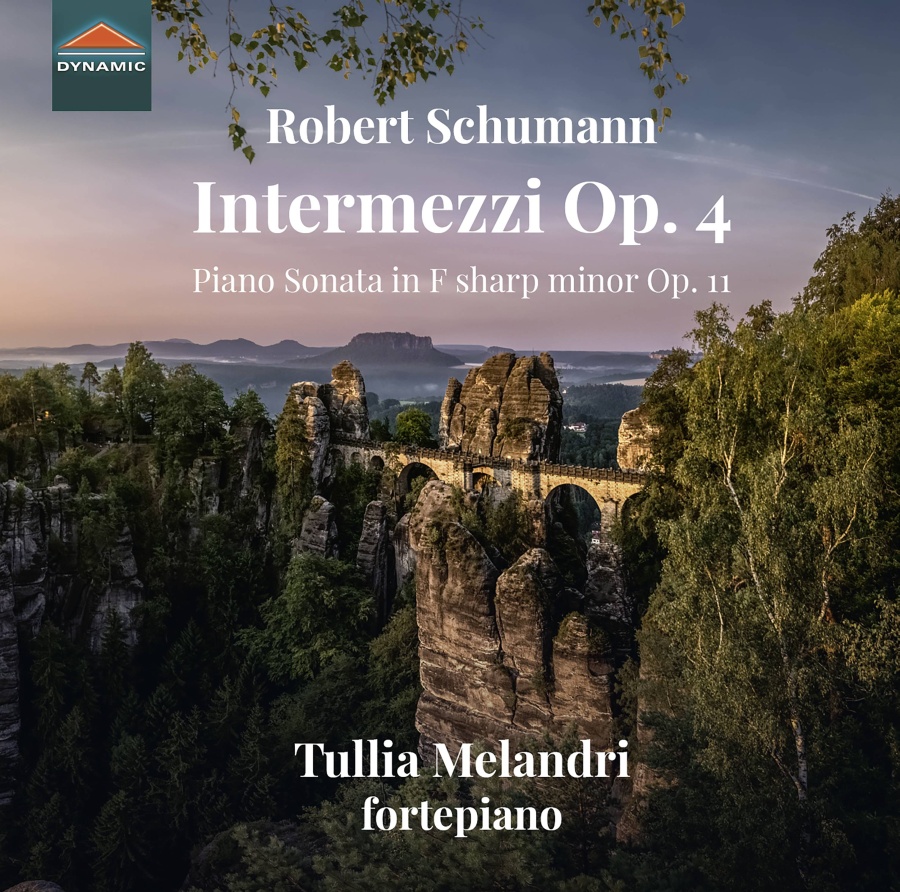
kompozytor
Schumann, Robert
tytuł
Schumann: Intermezzi Op. 4
wykonawcy
Melandri, Tullia
nr katalogowy
CDS 7842
opis
Schumann composed the Intermezzi, Op. 4 in the Spring of 1832 and declared that they were special works, conceived as “longer Papillons” where “every note ought to be weighed and balanced”. The Intermezzi employ the same techniques that were used in Op. 2: quotations, fragments, and metamorphoses of poetry into music. The Piano Sonata in F sharp minor, Op. 11 was written between 1833 and 1835 and is dedicated to his beloved Clara Wieck, whom Schumann addresses through the two alter-egos of his split personality, Florestan and Eusebius, the former enthusiastic and passionate, the latter introvert and reflective. • This recording was made on a Simon fortepiano dating from the 1830s, which possesses the same characteristics of the instrument used by Robert Schumann himself. • Italian-born Tullia Melandri is a specialist in music philology and the recipient of diplomas in piano and fortepiano performance. An award winner at numerous piano and chamber music competitions, Melandri has performed at festivals and in concert engagements all over Europe.
nośnik
CD
gatunek
Muzyka klasyczna
producent
Dynamic
data wydania
01-07-2019
EAN / kod kreskowy
8007144078423

(Produkt nie został jeszcze oceniony)
cena 64,00 zł
lubProdukt na zamówienie
Wysyłka ustalana indywidualnie.
Darmowa wysyłka dla zamówień powyżej 300 zł!
Darmowy kurier dla zamówień powyżej 500 zł!
sprawdź koszty wysyłki